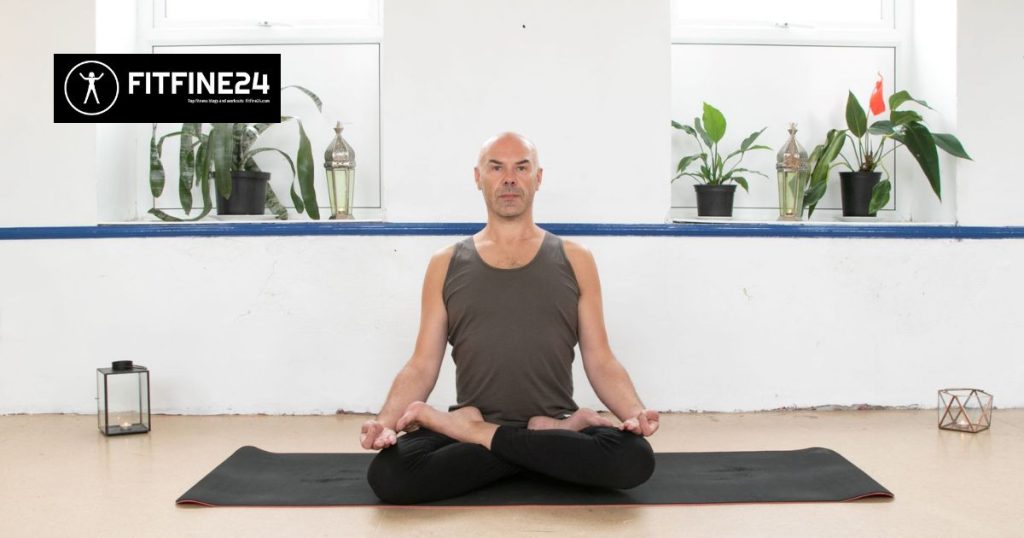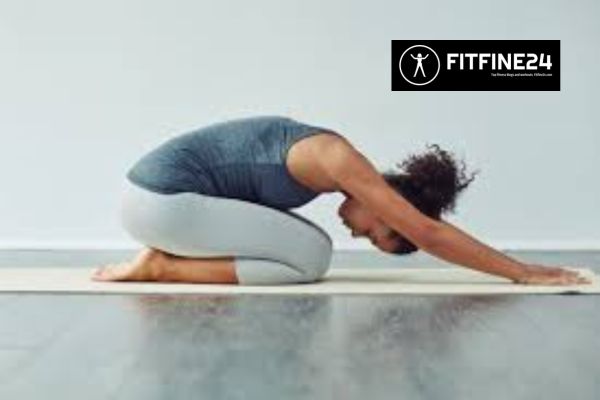
Jnana Yoga is often known as the ‘path of knowledge,’ and it operates to gain self-realization and spiritual awakening through knowledge and intellectual inquiry, making it one of the four main yoga paths. For example, Jnana Yoga falls on the opposite side of the spectrum from physical branches like Hatha or Vinyasa and instead involves the mind; the reduction of moha (ignorance) to reach full samadhi, self-realization or being aware that atma (soul within all beings) and brahman (super soul ) are one.
For those who are intellectual or wish to taste a deeper experience of life and existence, Jnana Yoga is an amazing way towards self-discovery. In This Post on fitfine24, we will look at What Is All About, the Principles of Jnana Yoga & How it would be helpful to you, and The fitness journey in which you take care of your body.
What is Jnana Yoga?
This is usually called the yoga of knowledge, but it is more than just any common knowledge. Jnana Yoga seeks after knowledge of the self, who we are beyond our physical, emotional, and intellectual existences. It is focused mainly on self inquiry (Atma Vichara) and reflection to dissolve the illusory world (Maya) which prevents us from recognizing our connection to the divine or ultimate reality (Brahman).
Jnana Yoga is sometimes considered the path of philosophy and contemplation because it examines metaphysical questions outside of daily life. The oldest form of yoga and is closely associated with the teachings of ancient texts such as the Upanishads and the Bhagavad Gita.
The Four Stages of Jnana Yoga
Finally, Jnana Yoga:is considered the most difficult as it follows four distinct stages toward enlightenment. Every stage assists you in peeling the layers of ignorance apart and getting to your real self with every step.
Viveka (Discernment)

Viveka: The ability to distinguish between real and unreal is the first stage. It involves becoming aware that the physical world is transient and ephemeral (Maya) while the spiritual soul within us all is immortal (Atman). This stage needs to remind itself all the time: nothing is forever, and it has to remind itself over and over again of the nature of the human true essence
Vairagya (Detachment)
Vairagya is dispassion or non-attachment to the ego and its material desires. During this stage participants are taught to release material attachments such as wealth, social status, and even emotional ties that can skew their perception. Not to become passively indifferent to the world but free from how the lust for material things holds onto our hearts.
Shatsampat (Six Virtues)
CONCENTRATION: This part emphasizes nurturing six virtues or mental qualities to govern the mind and the senses;
Shama (Tranquility):A quiet mind.
Dama( Control Of Senses): Conquering Of Physical senses.
Update: NOT SEEKING JOY FROM THE EXTERNAL WORLD
Titiksha: 1st endurance; being patient, in fluctuating hardships.
Shraddha: Inspiring faith in the guru, Dharana, and path
Samadhana(Concentration):Yogi builds the capacity to focus the mind on a point of meditation.
MUMUKSHUTVA — Intense Generate for Liberation.
The final one, Mumukshutva means someone who has a burning longing to be liberated or enlightened. When that desire is so strong, the seeker eventually meets a Sat-Guru at some point amongst his many lives with whom he can be fully committed and finally gain Moksha.
How Jnana Yoga correlates with fitness

Although This is an explicitly mental and philosophical path to take, it does complement your physical fitness routine in several key ways. But with Jnana Yoga, you cultivate mental clarity, focus, and discipline, and these are fundamental to yoga, as well as general fitness principles for strength training or endurance-focused disciplines alike. So, how Jnana Yoga will help you in your fitness journey?
Mental Clarity and Focus
One of the things that Yoga teaches is how to bring the mind to focus on the task and present moment, a huge skill set for any fitness regimen. Whether you’re balancing in a tricky yoga pose, running a marathon, or lifting weights, focusing on the task can help you hit big goals and stay injury-free. Clarity in mind will even enable you to set concrete fitness goals and keep focused on prioritizing achievements.
Self-Discipline
Jnana yoga — Jnana Yoga is nigh on impossible to do properly, it takes dedication and discipline primarily concerning self-inquiry and controlling the monkey mind. Applying that same discipline to your fitness goals will keep you going and keep you living a healthy lifestyle. Whether you are a student training for flexibility, strength, or even the discipline that is learned through Blade Yoga, can be roomed and related with sword cut babble personal development along did details.
Stress Relief
Stress can wreak havoc on overall health, mmental and physical alike, contributing to hybrid performance in your workouts. Detachment and Shama are home ground for Jnana Yoga, a path of mental tranquility; hence it can be instrumental in stress reduction by changing the perspective and reducing tension. Jnana yoga helps you master your mind and become less reactionary, which can benefit you across the board.
Mind-Body Connection
Jnana Yoga fosters deep awareness of self, which leads to a stronger connection between the mind and body. Being aware of these things can make a huge difference in the quality of your workouts, knowing how far you can push yourself while simultaneously preventing injury and getting maximal results as possible. No matter if you are practicing yoga asanas, working out using Masonic arts, or doing high-intensity training sessions Jnana Yoga will give you the increased sensibility and awareness needed to create a better form and alignment in your activity.
Jnana Yoga in Your Daily Life — Application nothing But YOGAIghest Ways to incorporate Jnana Yoga in your Regular life with Practicals
You can do Jnana Yoga wherever you are, without a yoga mat or any special time of day. Then that can be practiced at any time, in any place—through self-reflection and inquiry. Incorporating Jnana Yoga into Your Life Here are a few ways to include elements of this powerful form of yoga in your life:
Daily Reflection

Instead, spend time alone every day to meditate on existential questions such as “Who am I? Why Am I Even Here? → What is real and permanent? This is the essence of Jnana Yoga, and often these questions yield great revelations over time.
Mindful Meditation
The cornerstone of Jnana Yoga is Meditation. Integrate a daily meditation, even if just for a few minutes to clear & strengthen your mind. Just be quiet listening to your thoughts without engagement.
Study of Scriptures
So reading and reflecting on ancient yogic texts like the Upanishads or the Bhagavad Gita can provide you with immense clarity in Jnana Yoga. They provide timeless wisdom on some of the most important questions in life which can help you along your path of self-inquiry.
Detachment Practice
Cultivate a mindset of detachment from the material in the daily fabric of your life by noticing how much importance you attach to things outside, whether they are possessions achievements, or relationships. Reducing the emotional dependency on this aspect of life to create peace and freedom from within.
An Overview of Jnana Yoga in your Wellness[oUT_PATH]
Jnana yoga is frequently understood as an intellectual practice, but its effects are not confined to the mind. Without your realization, Jnana Yoga strengthens the path toward fitness in your mind by increasing mental clarity, discipline, and self-awareness. It builds your mind-body connection, keeps you in the moment during workouts, and nurtures the self-control necessary for fitness success.
We at fitfine24 believe in holistic fitness to go beyond the mere concept of body and also focus on mental, emotional, and spiritual well-being. A good mental and spiritual base, provided by Jnana Yoga can complement your physical fitness efforts and lead to a healthy body along with a controlled soul.

